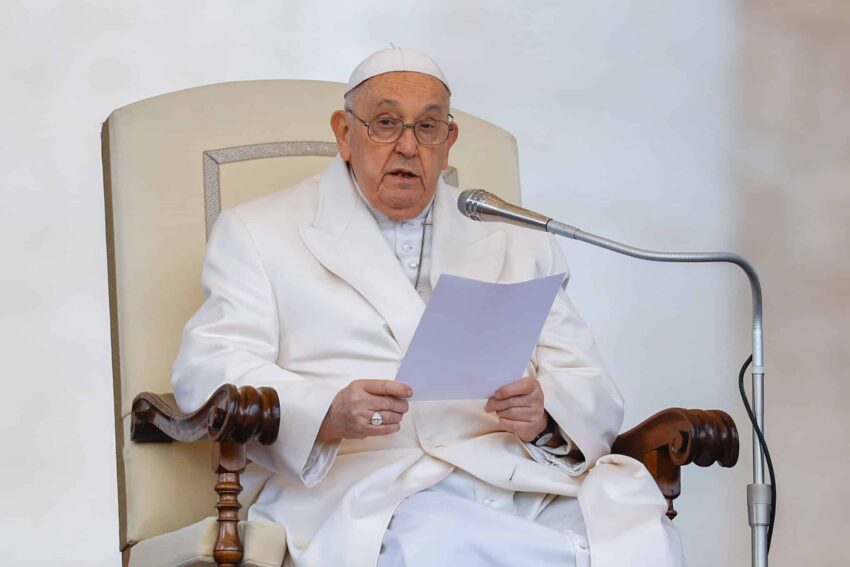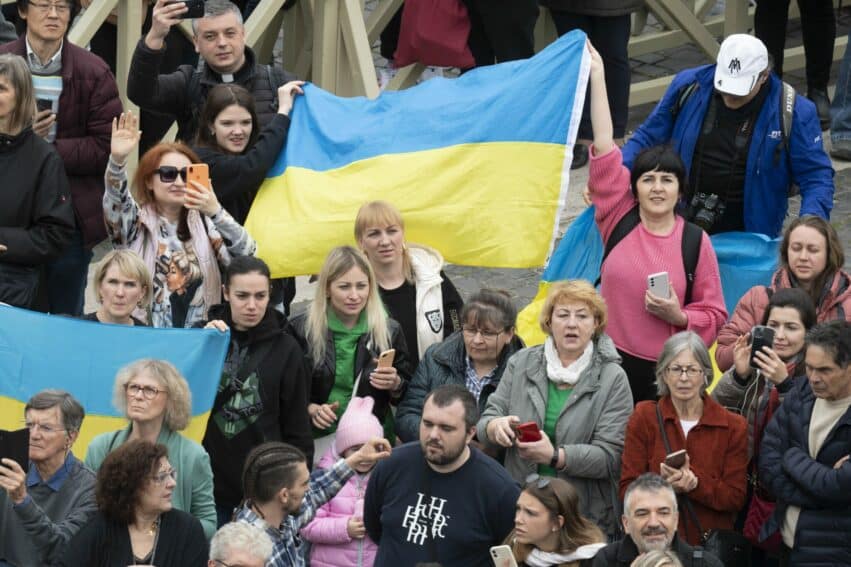
Justin McLellan, OSV News
Encouraging negotiations to end Russia’s war on Ukraine, Pope Francis called for the warring sides to have the “courage of the white flag,” raising angry protests from Ukrainians and world leaders.
Asked in an interview whether Ukraine should surrender and if doing so would legitimise the actions of the stronger power, the pope said that “the strongest one is the one who looks at the situation, thinks about the people and has the courage of the white flag, and negotiates.”
Ukraine’s foreign minister Dymytro Kuleba replied by calling on the pope to stand “on the side of good” and to reject negotiations that would put Ukraine and Russia “on the same footing.”
“Our flag is a yellow and blue one. This is the flag by which we live, die, and prevail. We shall never raise any other flags,” Kuleba said on social media on Sunday.
The interview, with Italian-language Swiss broadcaster RSI, was recorded on 2 February, but segments were released on 9 March ahead of its full release scheduled for 20 March.
Several Italian media outlets quickly began circulating stories on the interview on 9 March that incorrectly quoted the pope as saying that “Ukraine should have the courage to raise the white flag.”
Matteo Bruni, director of the Vatican press office, told reporters on 9 March that the image of the white flag—a term used by the interviewer in posing the question—was picked up by the pope “to indicate the cessation of hostilities, a truce reached with the courage of negotiation. His hope is for a diplomatic solution for a just and lasting peace.”
Bruni also cited the Pope Francis’ words in reference to the Israel-Hamas war elsewhere in the interview, “but referring to every situation of war,” in which the pope said that “negotiation is never a surrender.”

Discussing Ukraine, the pope said that “to negotiate is a courageous word,” noting that negotiations are possible with the help of the international community. He mentioned, for example, that Turkey had offered to mediate the conflict.
“When you see that you are defeated, that things don’t advance, have the courage to negotiate,” the pope said. “You may be ashamed, but how many will end up dead? It will end up worse still. Negotiate in time, look for some country that may act as a mediator.”
“Do not be ashamed of negotiating before things gets worse,” he said.
After reciting the Angelus prayer on 10 March with visitors in St Peter’s Square, the pope encouraged everyone to pray for peace in Congo, in the Holy Land and in Ukraine. “May there be an end as soon as possible to the hostilities that cause immense suffering among the civilian population.”
Asked in the RSI interview about his willingness to act as a mediator in the Russia-Ukraine war, the pope said, “I am here, period,” and referenced a letter he sent to Israeli Jews 3 February in which he encouraged them to not succumb to defeatism and mistrust, but to “never lose hope for a possible peace.”
“Negotiation is never a surrender,” he said. “It is the courage to not bring the country to suicide.”
Andrii Yurash, the Ukrainian ambassador to the Vatican, called the war in Ukraine the third world war in a post on X after the pope’s comments were published, and he asked whether anyone would have considered raising the white flag with Hitler.
The Vatican has repeatedly offered to act as a mediator between Ukraine and Russia, and last year Pope Francis sent his peace envoy for Ukraine, Cardinal Matteo Zuppi of Bologna, Italy, to Kyiv, Moscow, Washington and Beijing to meet with foreign leaders and advance peace talks on Ukraine.
